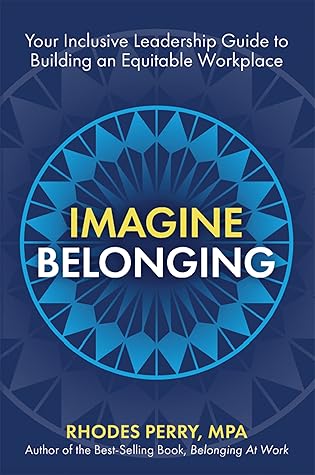More on this book
Kindle Notes & Highlights
by
Rhodes Perry
envision a workplace that centers the importance for each of your stakeholders to feel an emotional outcome of belonging.
often leads to better business outcomes due to the shared sense of safety and trust, which creates strong team cohesion
When we have the courage to imagine what we could build, it gives us a target to work toward.
Ultimately, these statements failed to acknowledge the very real fear, pain, and anxiety so many employees, and in particular BIPOC employees, endured.
making the leadership decision of not centering the safety of those most harmed by the images we all saw that horrific day suggests that there is a great deal of discomfort in fully honoring these stated DEI commitments.
Euphemisms are designed with certain folks’ fragility in mind.
we will not experience a collective sense of belonging
But those in the dominant cohort won’t recognize that they are missing a common sense of belonging. They belong to all the groups that matter, all the groups that hold power, and they have no incentive to worry themselves over whether there is a *collective* sense of belonging. All that will matter to them is their own sense that they belong in the top group.
Who on your team is the least likely to feel safe?
I really don’t know who on my team is most likely to feel unsafe. Am I supposed to make assumptions based on stereotypes - the women or the black people will feel the most unsafe? How can I know who feels this way other than by guessing at surface characteristics?


